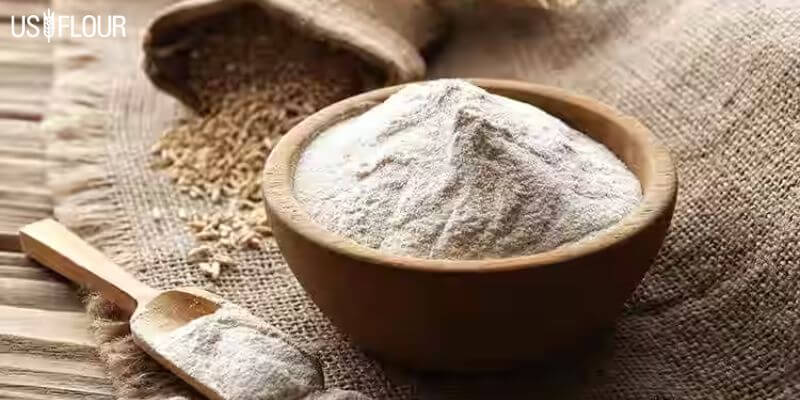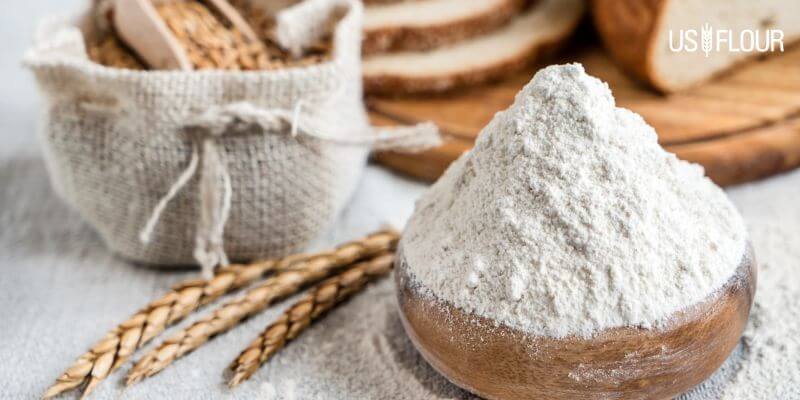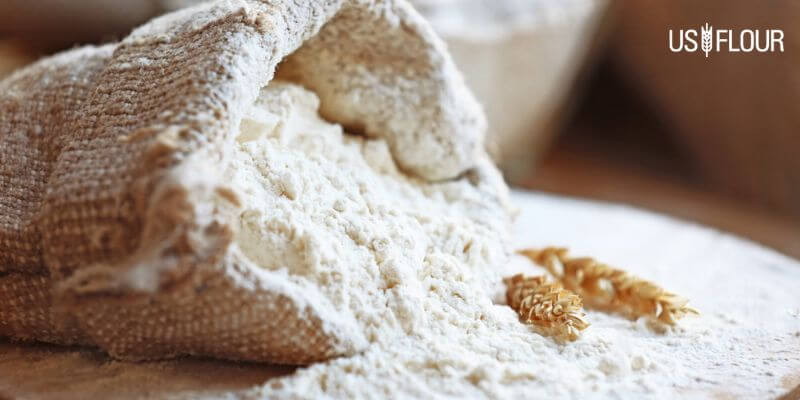Understanding Organic Flour Labels

When you look at flour packages, you may find the term “organic” label on them. Under this label, you can find other information like nutrition details and ingredient lists. Understanding what this label means will ensure you know what each flour contains and its reliability. Also, as a buyer, you can deliberately choose the product that meets your nutritional needs.
What Do Organic Flour Labels Mean?

Organic flour labels show that organic farming practices were used to produce the flour. The title contains different contents, and below are the essential things to understand about organic flour labels:
1. Organic certification

Organic certification indicates that the flour is produced following strict standards and regulations. The certification process involves thorough inspection and verification by independent third-party organizations.
Certified organic flour guarantees that it has been cultivated without synthetic pesticides, fertilizers, or genetically modified organisms (GMOs). It also assures consumers that sustainable farming practices, soil health, and environmental conservation have been prioritized.
When you see the organic certification label on flour packaging, it confirms that the product meets organic principles. Therefore, you can trust that the production process and the flour are healthier and more environmentally friendly if you want organic options.
2. No chemical additives
Another organic flour label that is an essential characteristic of organic flour is the “no chemical additive” tag. Unlike conventional flours, organic flours are made without artificial additives, preservatives, or bleaching agents.
Organic flour retains its nutritional value and natural integrity because chemical additives are avoided. It promotes a more natural and wholesome eating experience while providing customers with a product free from potentially harmful substances.
When choosing organic flour, look for indications on the packaging that confirm the absence of chemical additives. This ensures that the flour meets organic principles and aligns with your expectations if you are looking for a purer and additive-free option for your baking and cooking requirements.
3. Sustainable farming practices
This organic flour label reflects the environmentally conscious approach used in flour production. Organic farming methods prioritize sustainability, biodiversity, and the preservation of natural resources.
Adhering to sustainable farming practices, organic flour is cultivated without synthetic pesticides and fertilizers that can harm the environment. It promotes soil health, reduces water pollution, and protects wildlife habitats.
Choosing organic flour with this label indicates that the flour has been produced with a focus on long-term ecological balance and conservation. As a consumer, you can make a positive impact by supporting agricultural products that preserve the environment.
4. Non-GMO
GMO stands for genetically modified organisms. GMOs are organisms whose genetic material has been altered through genetic engineering. Non-GMO is a significant organic flour label that highlights the absence of GMOs.
Furthermore, this label assures you that the wheat used in flour production has not been genetically modified. This means that the flour is derived from traditional, non-engineered crops, maintaining the natural genetic diversity of the plants.
If you are concerned about the potential risks and ethical considerations associated with GMOs, you should choose organic flour with the “non-GMO” label. This is because it provides reassurance that you are opting for a product that upholds natural and traditional agricultural practices.
5. Traceability
Another essential organic flour label is traceability. This tag refers to the ability to trace the origin and journey of the flour from seed to final product. It also emphasizes transparency and accountability throughout the supply chain.
Additionally, organic flour with this label ensures that every step of flour production can be traced and verified. This includes information about the specific farm or farms where the wheat was grown, the milling process, and the packaging facility.
By choosing flour with this label, you can be confident about the quality and authenticity of the flour. Traceability provides transparency and fosters a deeper connection between consumers and the farmers who cultivate organic wheat, promoting trust and sustainability in the organic food industry.
6. Does Organic Flour Cost More?
Generally, organic flours are more expensive than conventional flours. The costlier organic farming methods are the leading cause of the higher price. GMOs, synthetic pesticides, and fertilizers are all avoided by organic farmers because they frequently demand more labor and resources.
Furthermore, compared to conventional crops, organic crops might produce lower yields. These elements and the rising demand for organic goods impact the price of organic flour on the market.
Are Organic Flour Labels Reliable?
It is common to find many flour labels tagged as organic. This is a method used by many flour companies to increase the demand for and sale of their products at high prices. As a result, this makes it essential for you to identify the correct organic flour.
To know that organic flour is authentic and reliable, you should be able to read the label thoroughly. The flour is deemed reliable if the ingredient used in its product contains a minimum of 95% organic ingredients, has the USDA organic seal, and is certified as being organic. This seal is prohibited on products with less than 95% organic ingredients.
Additionally, to make an informed decision when buying flour, you should know that there are different types of labels. In some cases, some flours are labeled natural, but that does not mean they are organic, even though both terms have the same meaning. The easiest way to ensure you get organic flour is to understand what the labels all stand for.
Conclusion
When purchasing organic flour, look for recognized organic certification logos from reputable organizations, which may vary depending on your region. For example, USDA Organic in the United States and EU Organic in Europe. These labels ensure that the flour adheres to strict organic standards, providing consumers with a healthier and more environmentally friendly option.
 Power to The Bakers.
Power to The Bakers.